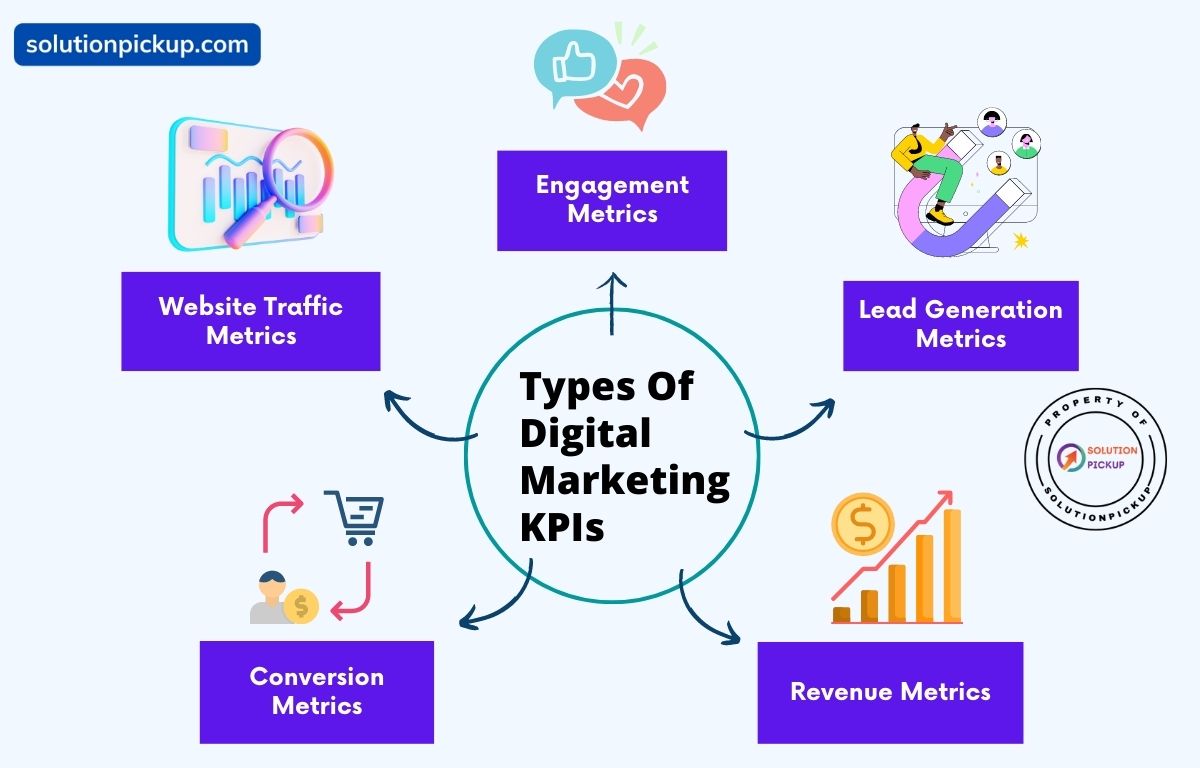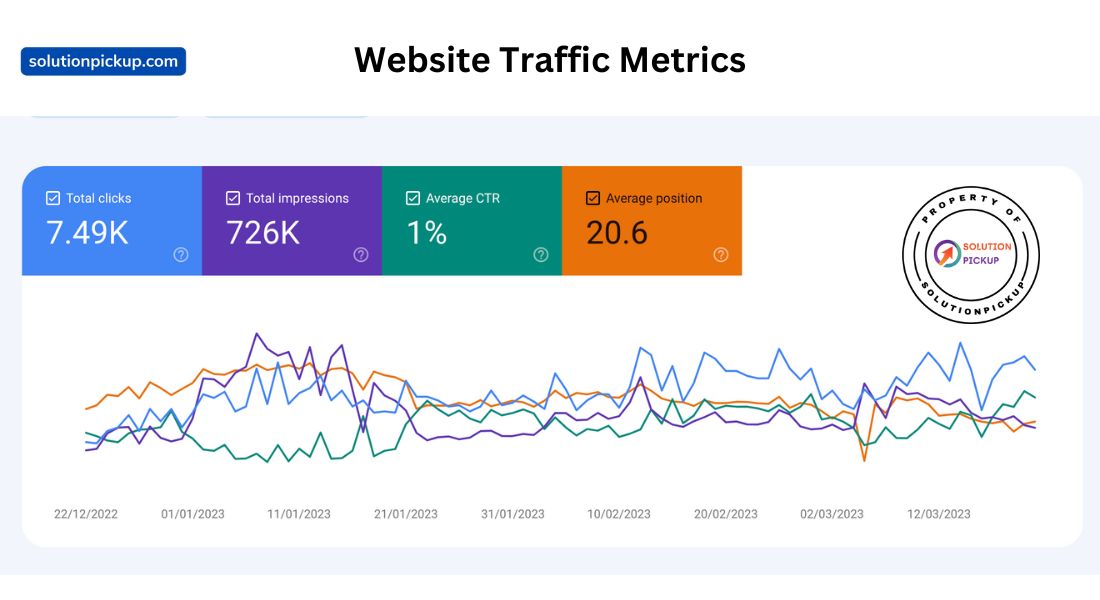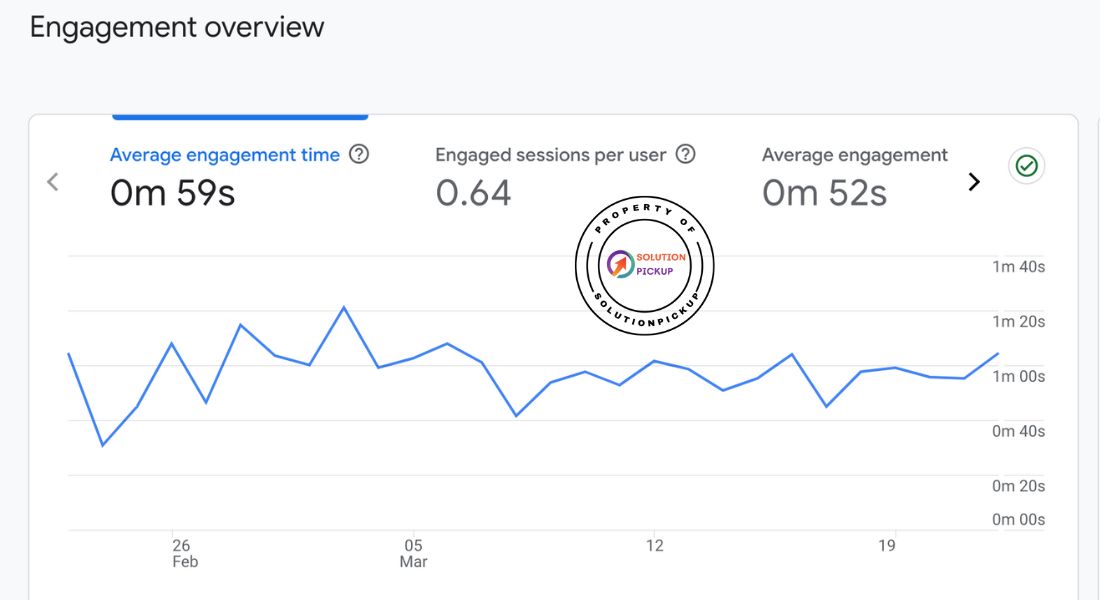Key performance indicators (KPIs) in digital marketing are used to measure the success of a company’s digital marketing initiatives. These numbers are important for determining how well your digital marketing campaigns are doing and making data-driven choices to improve your campaigns.
Various key performance indicators (KPIs) for digital marketing will be discussed, along with their significance in gauging the success of digital marketing campaigns and how they can be used to enhance a company’s marketing efforts.
What are Digital Marketing KPIs?
The Key Performance Indicators for digital marketing aim to provide businesses with insight into the success of their digital marketing strategies and areas for improvement.
Types of Digital Marketing KPIs:
Businesses should evaluate the success of their digital marketing by tracking five types of key performance indicators. These include:

Website Traffic Metrics:
Website traffic metrics and their behavior track visitors to a website. Pages viewed, unique visitors, bounce rates, and time spent on a website are examples of website traffic metrics.

Engagement Metrics:
Engagement metrics measure users’ interaction with a website or digital marketing campaign. An example of an engagement metric is the number of pages per session, the number of engagements on social media, and the number of emails opened.

Lead Generation Metrics:
Measures of lead generation track how effectively a business generates new leads. Among the metrics used to measure lead generation are conversion rate, cost per lead, lead quality, and lead-to-close ratio.
Conversion Metrics:
An organization’s conversion metrics measure how well it converts leads into customers. Revenue per customer, conversion rate, cost per acquisition, and return on ad spend are examples of conversion metrics.
Revenue Metrics:
Metrics tracking revenue are used to measure the profitability of a digital marketing campaign or website. In addition to total sales, average order value, customer lifetime value, and revenue per user, revenue metrics can also be broken down into segments.
Top 10 Digital Marketing KPIs to Track:
Website Traffic:
Measurement of website traffic can help improve marketing strategies.
Conversion Rate:
Here one has to look at how keeping track of conversion rates can help marketing campaigns be better.
Click Through Rate (CTR):
Assess the effectiveness of advertising campaigns by tracking CTR.
Cost per Acquisition (CPA):
It is about how can CPA be used to figure out how cost-effective a marketing campaign is.
Customer Lifetime Value (CLV):
CLV tracking is important in terms of customer retention and loyalty, so describe how it can help.
Social Media Engagement:
Explain why tracking social media engagement is important and how it can help improve brand awareness and customer retention.
Email Marketing Metrics:
It is about how can tracking metrics like open rates and click-through rates help improve email marketing campaigns.
Search Engine Ranking:
Explain how tracking search engine rankings can increase traffic and visibility on a website.
Return on Investment (ROI):
Analyze marketing campaigns' ROI to determine their profitability.
Customer Satisfaction (CSAT):
Tracking customer satisfaction is important for customer retention and loyalty.
What are some common challenges businesses face when tracking Digital Marketing KPIs?
Digital Marketing KPI tracking can be challenging for businesses for a number of reasons:
1) Data Overload:
Identifying meaningful insights and focusing on the most important KPIs can be challenging in a world with so much data available.
2) Lack of Alignment:
Ineffective decision-making can result when digital marketing KPIs do not align with business goals.
3) Difficulty Attributing Results:
As a result, determining how effective each marketing campaign or channel is can be challenging.
4) Inaccurate Data:
Incorrectly configured tracking tools or improper data collection and analysis can lead to inaccurate data.
Why are Digital Marketing KPIs important?
The value of digital marketing KPIs is that they provide data-driven insight into the effectiveness of digital marketing campaigns. It is possible for businesses to optimize their digital marketing strategies based on these metrics, identifying what works and what does not.
How often should businesses track Digital Marketing KPIs?
For businesses to ensure they are staying on track and making progress toward their marketing goals, they should monitor Digital Marketing KPIs on a regular basis, such as weekly or monthly. In order to identify trends and make informed decisions, it is crucial to establish a regular cadence for tracking KPIs and reviewing the data.
What is the relationship between Digital Marketing KPIs and ROI?
KPIs in digital marketing directly link to return on investment (ROI) in digital marketing. Businesses can evaluate the ROI of their digital marketing campaigns by tracking conversion rates and revenue per customer.

How can businesses set goals for Digital Marketing KPIs?
In order to determine how digital marketing can support businesses‘ overall business objectives, businesses must first identify their overall business objectives. Using this information, they can identify the specific KPIs that will be most important to their success, and set realistic targets for each one.
How can businesses use Digital Marketing KPIs to improve their marketing efforts?
With Digital Marketing KPIs, businesses can gain insight into user behavior, preferences, and engagement levels, as well as identify areas for improvement. Businesses can increase leads, conversions, and revenue by focusing on metrics that are most important to their business goals.
Conclusion:
To optimize marketing performance, digital marketing KPIs are critical for evaluating the success of digital marketing efforts. Businesses can gain valuable insights into user behavior, preferences, and engagement levels by tracking website traffic metrics, engagement metrics, lead generation metrics, conversion metrics, and revenue metrics. Business owners can drive more leads, conversions, and revenue by utilizing this insight in their digital marketing strategies.
Frequently Asked Questions (FAQs)
What tools can businesses use to track Digital Marketing KPIs?
Several tools are available for tracking Digital Marketing KPIs, including Google Analytics, SEMrush, Ahrefs, HubSpot, and others. A digital marketing tool should align with your business goals and provide you with the information and insights you need to make informed decisions.
How can businesses measure the impact of Digital Marketing KPIs on their business?
Through tracking changes in key business metrics, such as revenue, sales, and customer acquisition, businesses can measure the impact of Digital Marketing KPIs on their business. Businesses can gain insight into the impact of their digital marketing efforts on their overall business performance by correlating changes in these metrics with changes in their digital marketing KPIs.

